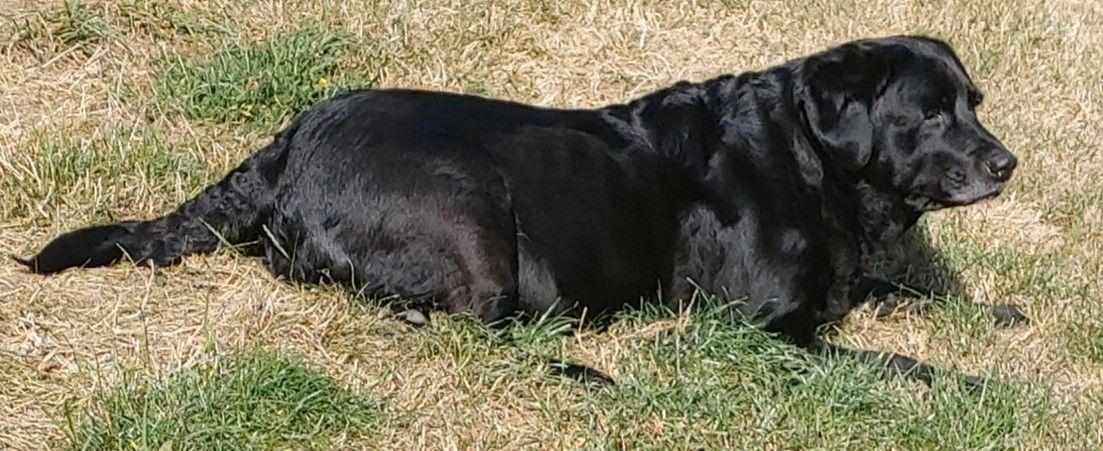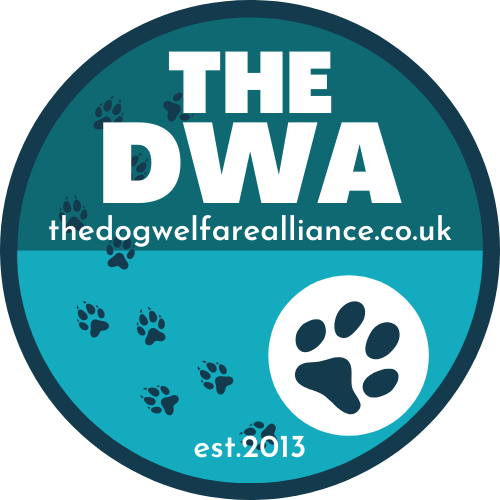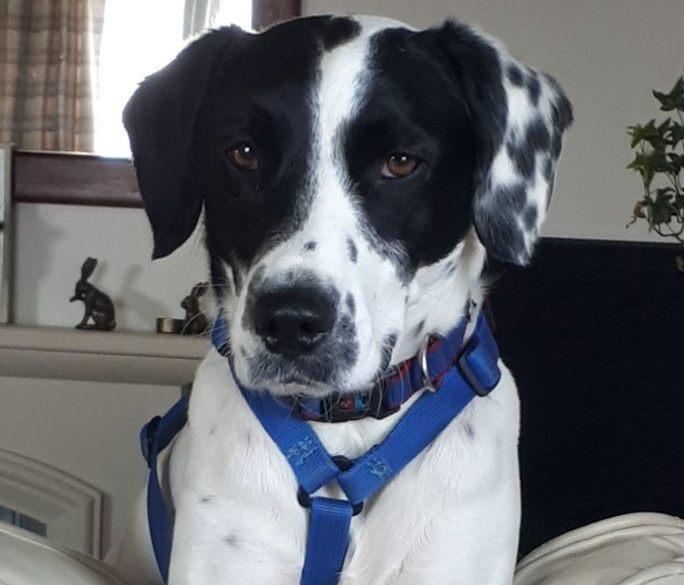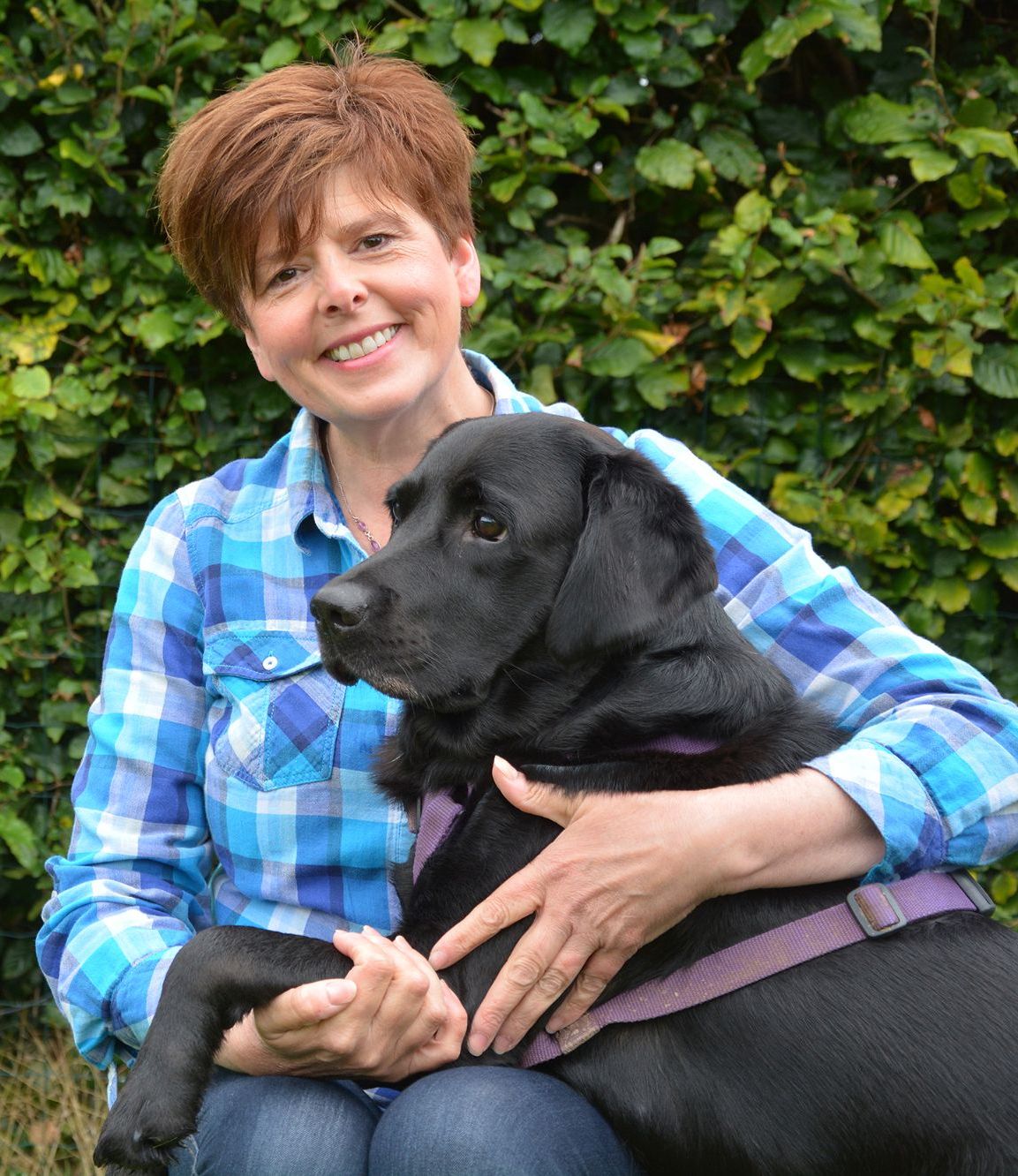Caroline Lewis - Deaf and Rescue Dog Specialist
We are very lucky at the DWA to have expert members who promote and follow our force-free ethics, including Caroline Lewis who specialises in Deaf Dogs and Rescue Dogs!
Caroline is passionate about the subject and with the help of her dog Morris (left) has kindly written about it for us.
Deaf not Difficult
As a behaviour consultant working in the rescue system and within people's homes, I can work with many dogs who are deaf, partially deaf or have hearing problems.
With that of course are the natural concerns of people who care, and want to ensure they get the right foundations in place to help the dog and ultimately understand them too.... I love this! Enabling people to be able to realise these dogs have incredible abilities is a passion of mine, and one I am always keen to continue to share with as many as possible.
It is why I love being a behaviourist, why I set up Deaf Not difficult, why I teach, run seminars and run courses all of which are done internationally. The more that understand, means more awareness is created. The more dogs are then helped, rehomed quicker and easier, and there is less confusion, worry and potentially stress, in everyone and every dog concerned.
Let’s back track slightly. Sharing a home with a deaf dog is a choice I made a few years ago. It felt the right and natural one to make based on my work in and around rescues, and how much fun I found they were. Through this, and my own deaf dog Morris, I realised there are many in the system and in homes needing help, understanding and assistance. Combined with support for the people who share their lives with them too.
Morris lives alongside Molly who was 7 when he joined us just over 5 years ago. They support each other, play together, look out for each other and we all enjoy doing different activities as a family unit no matter what they may be. I encourage their self confidence, ability to think for themselves and decision making skills to flourish. How? By creating choices, giving time and patience, and observing what makes the dogs happy, feel proud of themselves and fulfilled.
When we do this, we have a dog who can not only cope with life, but actually love life and want to learn and develop more – for itself, not just because we ask for it or put a command in place. This is something we all want isn’t it.
At this point we have a choice as to how we see them don’t we? So often I am told ‘you’re brave’, ‘oh what a shame’, ‘poor dog’. The fact is a dog with no hearing, or a reduced ability to hear, isn’t bothered by it. The dog can easily take life in its stride if allowed and understood.
How does it do that? Because the body adapts and changes to ensure that what isn’t perhaps working quite as well, isn’t missed. The rest of the dog has ‘stepped up’ in the most incredible ways, to create an even more able dog than we can imagine! I love the adventure of discovering how every dog shows and expresses this – it's really inspiring.
Deaf dogs are an area people can very naturally feel unsure of. This all comes from an understandable desire to want to do the right thing to help the dog, but without perhaps the knowledge and awareness to be able to find the way forward with the correct support.
How do you know if you have the right support? Well just a quick note (I will cover this properly in the coming weeks), a behaviourist who does understand about deaf dogs will always see the positive, and
show you how to enjoy sharing your life with these dogs. If they leave you feeling it is hard work, negative, stressful, a problem – then just look elsewhere, and find people who do understand.
A deaf dog helps bring awareness to how gentle and soft our interactions can be. This is such a great inspiration. We can find ourselves in a dog world where we are guided to train a lot, use many treats, they must always look at you, or sadly use ‘louder’ methods.
Combined with being encouraged to perhaps not move ourselves very much, and also use speech or sound a lot. This is where our worries can stem from, how the deaf dog gets confused as to what we want, and we are then left feeling there is a significant problem that feels far too overwhelming to deal with.
The reality........we just need to learn a different way of interacting with them, and then trust me.....a whole new exciting world opens up for you and them, and the fun truly begins.
Then we discover that a deaf dog is not difficult!
In the coming weeks, I will discuss more about these amazing dogs. The more we know, the less anxiety we feel.

Our Older Dogs – Wilful or Hearing Less? ~ 2/2/2023
As our amazing dog companions begin that transition into their more ‘distinguished’ years, we don’t always recognise what is naturally taking place within their bodies. Or, we can see, but aren’t sure how best to support them to ensure stress and worry is at a minimum.
It is not always easy to realise the hearing is going until perhaps the recall is non existent or they are perhaps barking more than normal.
When this is happening, it can definitely be a sign that the hearing ability is changing. It may be in both ears, or just the one, so being observant and noticing reactions (sometimes very subtle) is a good first step in helping them. Then we can put the right elements in place.
So how can we help our dogs not lose confidence in themselves and their abilities? I am very much about planning ahead where we possibly can, and also acting on what the dog will show us it needs.
As an example, let’s look at my older girl Molly who will be 13 years old in a few months time.
Her walks are always a mix of on and off lead, and this includes known usual walks, or new ones. Her recall is normally excellent.
I noticed a while ago, that she would very subtly and calmly come back to check in with me more than usual. I would stroke, check her and if that was all she wanted she would go for a sniff again. I then noticed she began to change her behaviour to coming to me and stopping. So I clipped her lead on and yes, she wanted the extra support the lead gave her. Always look for those little ‘extra guidance requests’ messages dogs can give out, that way they can continue enjoying their walks without stress and know we have ‘listened’ to their changing needs. Obviously the benefits are there for us too because our own stress levels are reduced.
If you have reached the point where perhaps your older dog is not coming back on recall, don’t get frustrated or angry. Change the walk for success, and think of how to make it easier for them by guiding into different skills. If you have always used voice commands as an example, then start using body language. Begin at home initially with crouching down, arms wide open and looking fun/welcoming. When they come back give a treat, praise and let them know just how good they are. Then start to incorporate this method when out.
Also combine with supporting on a lead more when walking, because you will definitely get to a point when this will be the normality. So your walks are going to change altogether.
Make the lead no less than 1.5m long
Walk slower to encourage lots more sniffing
If they are used to going to different places then please continue doing this (if they are still comfortable), because their world does not need to get smaller as they age....unless they want it too. An example Molly always wanted a walk every single day, but now she sometimes wants to go and
spend ages in the garden sniffing whilst I walk around with her – and that is absolutely fine. Let them choose, they are NOT being lazy they just want different things than they did previously.
Clear body language signs from us, and why wait until you have a problem – start it as soon as you can, then the dog is used to this method as well.
Incorporate gentle touch in case the eyesight also starts to decrease.
Another area you may notice is Increased barking or being noisier. Don't forget this isn’t always about going completely deaf, it can be about usual sounds feeling different – muffled, less, echoes, ringing in ears etc. So again don’t get frustrated, just guide, support and help them.
Other areas may be car travel, not as confident in the dark or as the light changes, walking on different flooring. These may seem strange to connect to hearing, but sometimes the middle ear is effected so changes their balance and they can lose confidence.
There are so many ways the aging dog can show hearing changes, together with reasons why including some health conditions – always have the teeth checked as an example. I hope this short insight into a couple of the key indicators, combined with some tips helps. Although there are so many other indicators and suggestions obviously.
With aging they are no different to us, the body changes and vulnerabilities increase. We need to be patient and compassionate during this time – it is what we would want too.
The largest element we normally need to adjust is in ourselves. Whilst we do not want to admit they are getting older perhaps, let’s be observant and help the process be easier for us and them.
If you require help with your older dog, hearing difficulties and changes in behaviour. Please head to https://www.facebook.com/HelpingHandforDeafDogs or www.help-at-handsdogbehaviour.com


